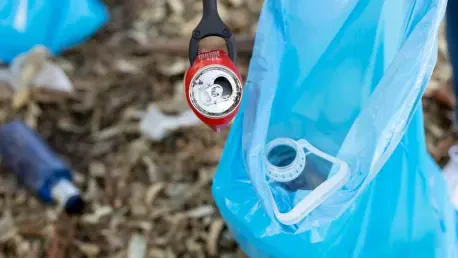Bekwai, a constituency in Ghana’s Ashanti Region, is on the brink of a transformative shift in how it handles waste management. Faced with daunting sanitation challenges, the region has long grappled with insufficient waste containers and the halting progress of its Sanitation Improvement Plan (SIP). Recently, these issues pushed stakeholders, including local Municipal Assembly representatives, Environmental and Sanitation officers, Zoomlion Ghana, and the Kumasi Compost and Recycling Plant, to join forces. Their united goal is to chart a sustainable path forward using innovative waste management strategies. The leading proposal from their discussions is to establish a mobile transfer station and a compost recycling plant within Bekwai. This initiative aims to convert waste into organic manure or compost, offering dual benefits of environmental sustainability and economic growth. The plan promises to improve waste collection infrastructure while simultaneously creating job opportunities for the local population. Spearheading this effort, Ralph Poku-Adusei, the local Member of Parliament, has demonstrated unwavering commitment to what he dubs the “Clean Bekwai” campaign.
Collaborative Efforts Toward Change
The obstacles Bekwai faces in waste management are multifaceted, yet collaboration among various stakeholders appears as a beacon of hope for sustainable resolution. The role of Ralph Poku-Adusei is crucial in this narrative, particularly with his additional influence as Deputy Ranking Member on the Committee on Sanitation and Water Resources. His involvement brings substantial weight to the realization of the intended projects. The emphasis lies on community-driven solutions that promise to address ongoing sanitation issues. The proposal for a mobile transfer station and compost recycling plant stands out as a groundbreaking measure. By transforming waste into organic manure, this initiative not only seeks to improve environmental conditions but also aligns with the broader objectives of sustainable development. It reflects comprehensive, long-term thinking aimed at fostering a healthier community. The emphasis on diversified stakeholder engagement underscores the intricate dynamics necessary to tackle Bekwai’s sanitation challenges effectively. These collaborations allow for pooling resources and expertise, driving innovative solutions that can benefit the entire region.
Proposing Practical Implementations
While the discussions and proposed projects hold promise, translating them into reality requires meticulous planning and execution. The establishment of a mobile transfer station and a compost recycling plant represents more than just an infrastructural addition; it is a strategic step towards creating a self-sustaining waste management ecosystem. This transition needs significant investment, both financially and in terms of community engagement. Optimizing waste collection while reducing environmental impact depends on how efficiently these projects are implemented. A focus on education, particularly raising awareness about recycling benefits and proper waste disposal, becomes paramount. Effective communication strategies will play a vital role in changing public perception and encouraging community participation in sustainability efforts. Incentives for the local populace to engage with this transformative initiative will likely enhance effectiveness. Moreover, local government and private sector collaboration can provide essential funding and technological expertise, ensuring that Bekwai harnesses best practices in sustainable waste management.
Future Considerations and Path Forward
Bekwai, located in Ghana’s Ashanti Region, stands on the verge of a significant shift in its waste management approach. Confronted with severe sanitation issues, the region has struggled with inadequate waste storage options and slow progress on its Sanitation Improvement Plan (SIP). These persistent challenges have prompted collaboration among stakeholders, including local Municipal Assembly members, Environmental and Sanitation officers, Zoomlion Ghana, and the Kumasi Compost and Recycling Plant. Together, their goal is to devise a sustainable approach using innovative waste management solutions. A key proposal is the creation of a mobile transfer station and a compost recycling plant in Bekwai. This facility aims to transform waste into organic manure or compost, offering environmental sustainability and economic development. The plan envisions enhancing waste collection infrastructure while also generating employment for local residents. Leading this initiative, Ralph Poku-Adusei, the local Member of Parliament, has shown steadfast dedication to the “Clean Bekwai” campaign.









